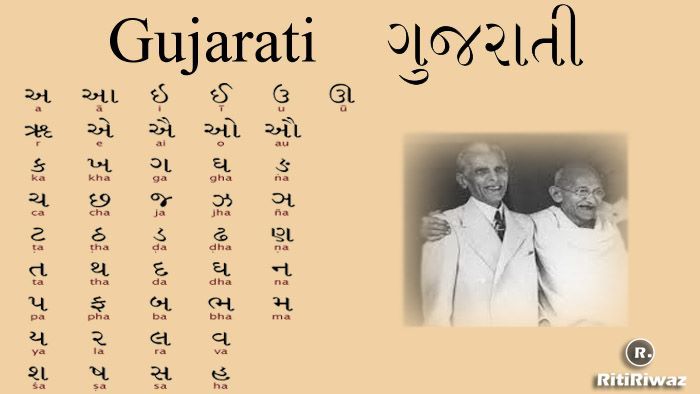
One of the main reasons for the decline of the Gujarati language usage in Pakistan is the state policies that have neglected promotion of the language
Nasir Aijaz
The Gujarati language, spoken by the Gujarati community in Pakistan, is facing a critical situation. This language has a rich history and cultural significance, but the country’s Gujarati community, primarily residing in Sindh province, has been facing challenges in preserving its language and culture. The community has been gradually assimilating into the Urdu-speaking population, leading to a decline in the usage of Gujarati language.
“Yes, there is a decline, but I disagree to the notion that Gujarati language is at the verge of extinction,” Shahid Saati, editor of ‘Vatan’, one of the two Gujarati language dailies published from Karachi, said referring to certain newspaper reports that depicted it as a ‘Dying Language’.
“Gujarati language cannot die,” he said adding, “It’s spoken by tens of millions of people in Pakistan, India and other countries of the world.”
“However, I acknowledge that in Pakistan, the usage of Gujarati language is declining. And, one of the main reasons for its decline is the lack of formal education and state policies that have neglected the promotion of this language,” Saati said.
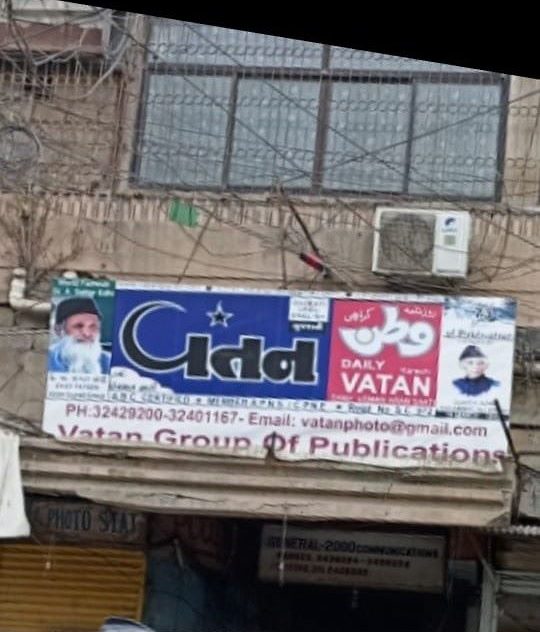
He recalled that there used to be some schools in Karachi, where the Gujarati students received education in their mother tongue. One of such schools existed in the premises of historic Sindh Madrassatul Islam (Now a university, where a school still exists in its premises). There were other schools located in old city areas including Kharadar. “Imparting education in Gujarati language continued till 1990s, when the provincial government, through a Bill passed in Sindh assembly, decided to shutdown Gujarati medium in the schools,” he lamented.
Some other senior citizens recall that in the Gujarati-medium schools, students were allowed to use it as the medium of answer in secondary and higher secondary examinations. Special arrangements were made to assess such answer scripts.
Related news: Teaching Gujarati subject in all schools of Gujarat is mandatory
“Currently, we don’t have even a single Gujarati medium school in Karachi or elsewhere in rest of Sindh and Pakistan,” Saati told.
The conversation with Shahid Saati made me to realize that as the Gujarati-speaking people here are not provided with the opportunity to study their native language in schools, the younger generation is increasingly adopting Urdu as their primary language, leading to a decline in the usage of Gujarati.
Furthermore, the lack of literary and media representation of the Gujarati language has also contributed to its decline. There are limited resources available in Gujarati, such as books, newspapers, and media content, making it difficult for the language to thrive in the modern era.
Related news: Gujarat: ‘Gujarati language must be taught in all schools by 2024
“We have only two Gujarati newspapers – one is ‘Vatan’, founded by Father of Nation Muhammad Ali Jinnah in 1942 in Bombay (Mumbai), and later shifted to Karachi after independence. Since then it continues its regular publication for over 81 years. Another Gujarati daily is ‘Millat’, launched after creation of Pakistan in 1948 by Inqilab Matri. These two dailies are striving hard, not only for their own survival, but also to safeguard and promote the Gujarati language,” Saati said responding to my query.
 “There used to be a third daily ‘Dawn Gujarati’, where my father Usman Saati also worked. This daily was closed about three decades back, and later my father purchased the rights of Vatan Gujarati,” he told.
“There used to be a third daily ‘Dawn Gujarati’, where my father Usman Saati also worked. This daily was closed about three decades back, and later my father purchased the rights of Vatan Gujarati,” he told.
Daily Millat and Vatan are still alive, but face a bleak future as the number of readers is falling steadily. “Decline of readers is a general phenomenon faced by almost all the newspapers of other languages, but there are other factors, already discussed, behind fall of Gujarati readership,” Saati said.
‘Millat’, launched by Fakhr Matri in 1948, added a few pages in Urdu about two decades ago to win over younger readers, but the experiment failed.
In the past, Gujarati community also used to import newspapers, magazines and books from India and some of them enjoyed immense popularity.
As regards Gujarati books and magazines, he said, “A generation, having interest in publishing and reading books and magazines in Gujarati language no more exists. It’s more than a decade that no book and magazine is published here in Gujarati language.”
In the past, Gujarati community also used to import newspapers, magazines and books from India and some of them enjoyed immense popularity. But the relations of two countries are strained since long and one cannot buy books and periodicals from India.
Gujarati ‘mushaeras’ (Poetry-recitation sessions) were also a regular feature in Karachi. And attendance at such events used to be good. But with the passage of time, all this seems a distant memory.
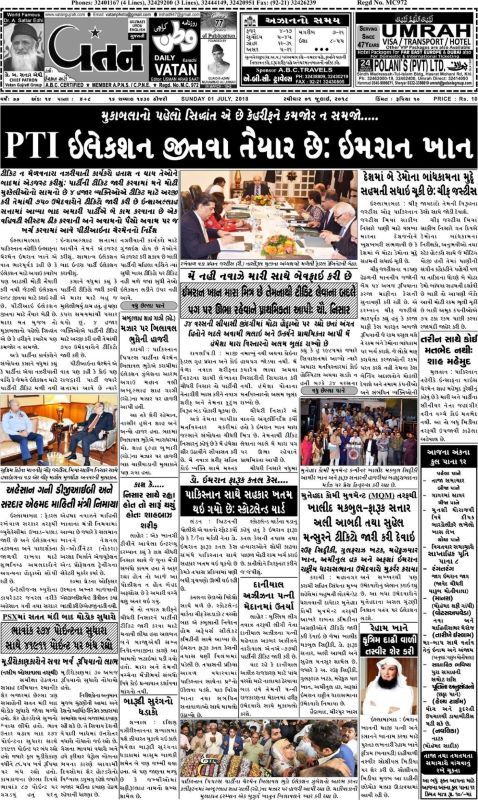 Shahid Saati said, “Many elderly persons from local Gujarati communities, who studied at Gujarati medium schools in Karachi, still earnestly desire that such schools are revived, as it will help promote the Gujarati language by publishing books and magazines and halt its process of decline, but alas the government has utterly neglected our language.”
Shahid Saati said, “Many elderly persons from local Gujarati communities, who studied at Gujarati medium schools in Karachi, still earnestly desire that such schools are revived, as it will help promote the Gujarati language by publishing books and magazines and halt its process of decline, but alas the government has utterly neglected our language.”
Government’s neglect and unfavorable policy towards Gujarati is evident from the fact that the National Database and Registration Authority (NADRA) has reportedly omitted Gujarati from the column asking the applicant about his mother tongue.
Also read: Why worry about your language?
Interesting enough, both Mohammad Ali Jinnah and Mohandas Karamchand Gandhi spoke Gujarati. Gandhi had authored his autobiography in Gujarati, which, later was translated in Sindhi, English and other languages. A renowned philanthropist and social worker of Pakistan Abdul Sattar Edhi was also a Gujarati speaking.
Spoken by over 50 to 60 million people, Gujarati is said to be the 26th most widely spoken language in the world. The majority of native speakers of Gujarati lives in the Indian state of Gujarat, where Gujarati is official language and is being taught at the schools. Apart from Gujarat, the regions where the language is spoken as first language include some areas of Maharashtra (like Mumbai), Pakistan, especially Karachi, Hyderabad, and some other cities of Sindh. Gujarati-speaking people can also be found in Bangladesh, a few African countries – where Gujarati-speaking Indians had settled centuries ago – and, of course, countries where Gujarati-speaking immigrants live in large numbers, such as the United Kingdom and the United States.
I was curious to know whether or not the Gujarati communities in Karachi speak their native language at home. In response to my query, Shahid Saati said, “Gujarati is neither a market-language nor it is used in government or private sector offices. That’s why the new generation of Gujarati-speaking does not use it. They lost interest in this language as they did not see any prospect while the Urdu and English languages offered lucrative jobs and were useful in education as well as for everyday communication in society.”
“But yes the community people do speak it strictly within the family or community.”
“The communities that still speak Gujarati are the Bohras, Parsis, Hindus, Ismailis, Kutchi Memon and Kathiawari Memon etc. They are mainly settled in Karachi, and some other cities of Sindh,” he added.
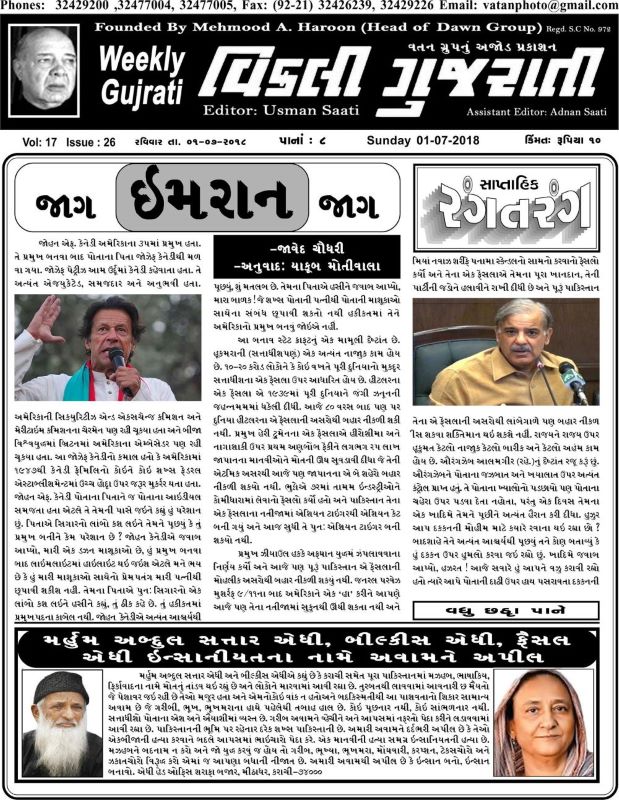 “Gujarati is spoken in Pakistan by those who migrated from present-day India after the creation of this country. Some of the communities that had settled here much before 1947 and did not migrate to India after Partition, still speak Gujarati,” he said.
“Gujarati is spoken in Pakistan by those who migrated from present-day India after the creation of this country. Some of the communities that had settled here much before 1947 and did not migrate to India after Partition, still speak Gujarati,” he said.
Having spent half a century in journalism and print industry, I knew its evolution and process of switching over from old manual system of composing to the computers. I wanted to know how the two Gujarati dailies sailed through this process.
“Transformation was not an easy job. In the absence of any facility in Pakistan, no one could develop the modern system and software here. We had to buy the system from India. But again, we have to face the dearth of skilled manpower, who could operate the system. We have very few people who know the Gujarati composing and software,” Saati told.
To my question about any efforts by the Gujarati community and language activists to preserve and promote their language, Saati said, “Some community organizations and individuals are working to teach Gujarati to the young generation to ensure its survival here. For this purpose, some activists had started Gujarati classes for community children in Soldier Bazaar and other areas. But such efforts need to be made on large scale to achieve the required results.”
It is crucial for the government and educational institutions in Pakistan to recognize the importance of preserving linguistic diversity and provide support for the preservation of languages such as Gujarati. By promoting multilingual education and cultural programs, the Gujarati language can be revitalized and preserved for future generations.
It is also essential for the community, government, and the society at large to work together to preserve and promote the linguistic diversity of Pakistan. The Gujarati language is an integral part of the country’s cultural tapestry, and its preservation is essential for the overall cultural richness of country.
Language is an vital part of any community’s identity and culture, and the loss of a language represents a loss of cultural heritage. The loss of a language is indeed a matter of concern – not for linguists or anthropologists alone but also for anyone interested in culture.
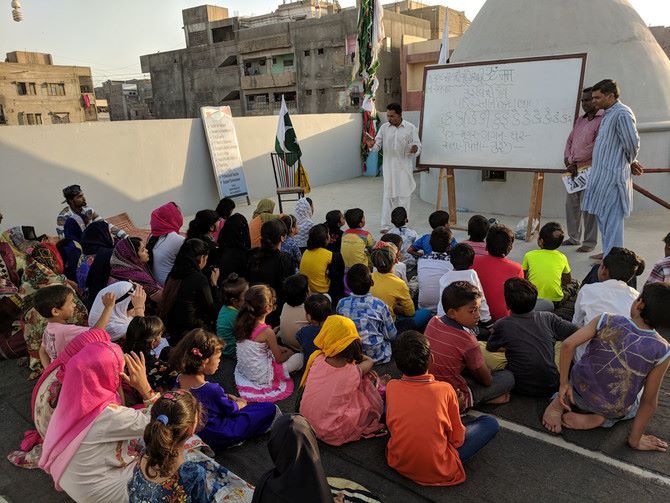
The Gujarati language is simple and relatively easy to learn. As a conversational language, it is concise, simple, and well adapted for social and domestic dealings.
Out of the 50 million Gujarati-speaking people in the world, around 3.5 million live in Karachi. Gujarati, is mother tongue of top-notch industrialists, businessmen, stockbrokers, and owners of major media houses. They are owners of 5-Star hotels, banks, and automobile industries. Even a large number of the city’s schools are owned by Gujarat-speaking people but the irony is that none of them teach their own language.
If the Gujarati businessmen, traders, industrialists and bankers etc. can contribute to national economy, they can also play key role in promoting the Gujarati language.
The Gujarati language is simple and relatively easy to learn. As a conversational language, it is concise, simple, and well adapted for social and domestic dealings. It is flowing and forceful despite small vocabulary, but can borrow largely from other languages to express abstruse metaphysical and scientific disquisitions.
Also read: Linguistic Anthropology and Memoni Language—Tracing Roots, Embracing Sindhi
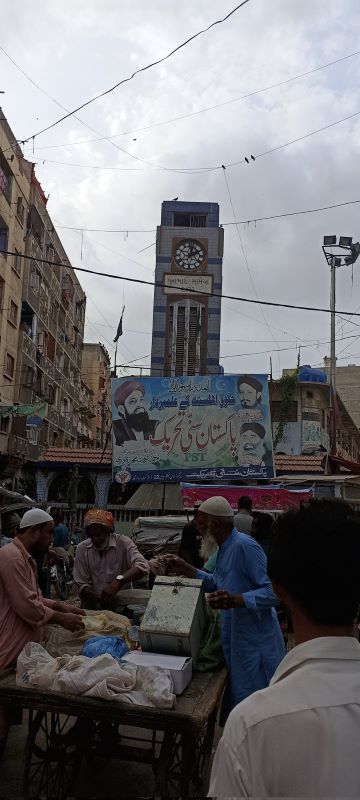
In the conclusion, I would suggest the Gujarati community organizations to launch a drive for revival of the Gujarati schools, recognition of language at state level, begin interaction with other language and cultural institutions of provincial government like Sindhi Language Authority, Sindh Culture Department, social and cultural organizations, seek financial and other assistance from businessmen and industrialists etc. for establishing software developing institutions, launch radio and TV channels, movies and dramas. This all would greatly help promote Gujarati language in Pakistan in general, and Sindh in particular.
The Gujarati community must break the silence and come out of the isolation.
_______________